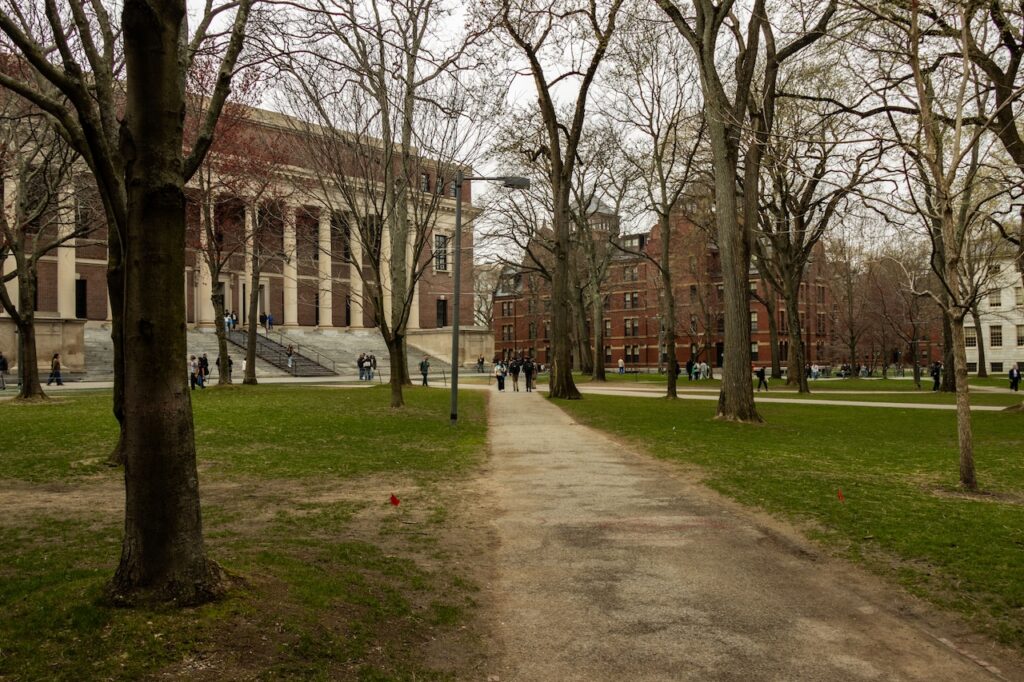Jules Riegel, a lecturer in History and Literature, planned to teach a course in the fall at Harvard University on global transgender history.
Now they are opting out of teaching the course due to fears of content-based retaliation and fears for their students’ safety and as an openly transgender individual, according to a Monday court filing.
“I have had to reevaluate how I can safely teach courses on topics including global transgender history, World War II and the Holocaust,” Riegel said.
Riegels’ decision comes at a time when Harvard University says it is fighting in federal court to protect its academic freedom, aiming to push back billions of dollars in funding cuts executed by the federal government.
The Harvard faculty chapter of the American Association of University Professors is also suing the federal government in a separate lawsuit. Riegel’s commentary is included in court documents on the case.
Both Harvard and the association submitted motions for summary judgment on Monday.
‘Fearful’: Faculty are changing coursework
As a non-tenure-track faculty member, Riegel said they are worried the Trump administration’s goal of “reducing the power held by students and untenured faculty,” as stated in an April 11 letter.
They are concerned about having “even less control around my curriculum, such as hindering my ability to determine my own course content, or being forced to teach content with which I disagree,” they said.
“I am fearful for the safety of my students, especially international students or students with immigrant backgrounds, including their ability to engage with critical scholarship around the Holocaust and transgender history,” Riegel said.
“Because of the administration’s actions, I could not in good conscience recommend that doctoral applicants attend Harvard right now,” they said.
Riegel isn’t alone in altering course plans.
Read more: Harvard foreign students feel like ‘poker chips,’ consider transfer after Trump attacks
An anonymous faculty member in the court filing also changed their teaching plans for next semester due to fears of harassment.
The professor, a member of the faculty of arts and sciences, planned to teach a course addressing the lead-up to the U.S. Civil War, according to a court filing from Harvard professor Kirsten Weld.
However, they felt like the topic would be considered a part of diversity, equity and inclusion programing due to its focus on slavery, settler colonialism, Indian removal and the U.S.-Mexico War.
The professor was concerned that they would face false accusations under Title VI — which prohibits discrimination based on race, color, or national origin — since the course would explore white supremacy in American history.
They were also nervous that, because they had already experienced public targeting and harassment at Harvard due to being in support of pro-Palestine student protesters, greater emphasis could fall on them.
Faculty are leaving — or needing more support
For other Harvard professors, canceling courses isn’t an option.
One anonymous faculty member, who has been working at the medical school and has decades of clinical expertise, said they will be working outside of the U.S. next year and plan to eventually leave the country “because they do not feel comfortable being at Harvard anymore.” The faculty member said their pro-Palestine advocacy and opinions make them a target at Harvard, according to the court filing.
Harvard researchers are also being discouraged from publishing in scholarly and public-facing materials on topics opposed by the federal government, according to Weld’s court filing.
Since the attacks against Harvard, the American Association of University Professors has had to prioritize training on digital surveillance and information security and a Know Your Rights workshop, using up valuable resources for the organization.
They also have had to hold twice as many meetings with members as they typically do to help navigate the Trump administration’s actions, according to the court filing.


